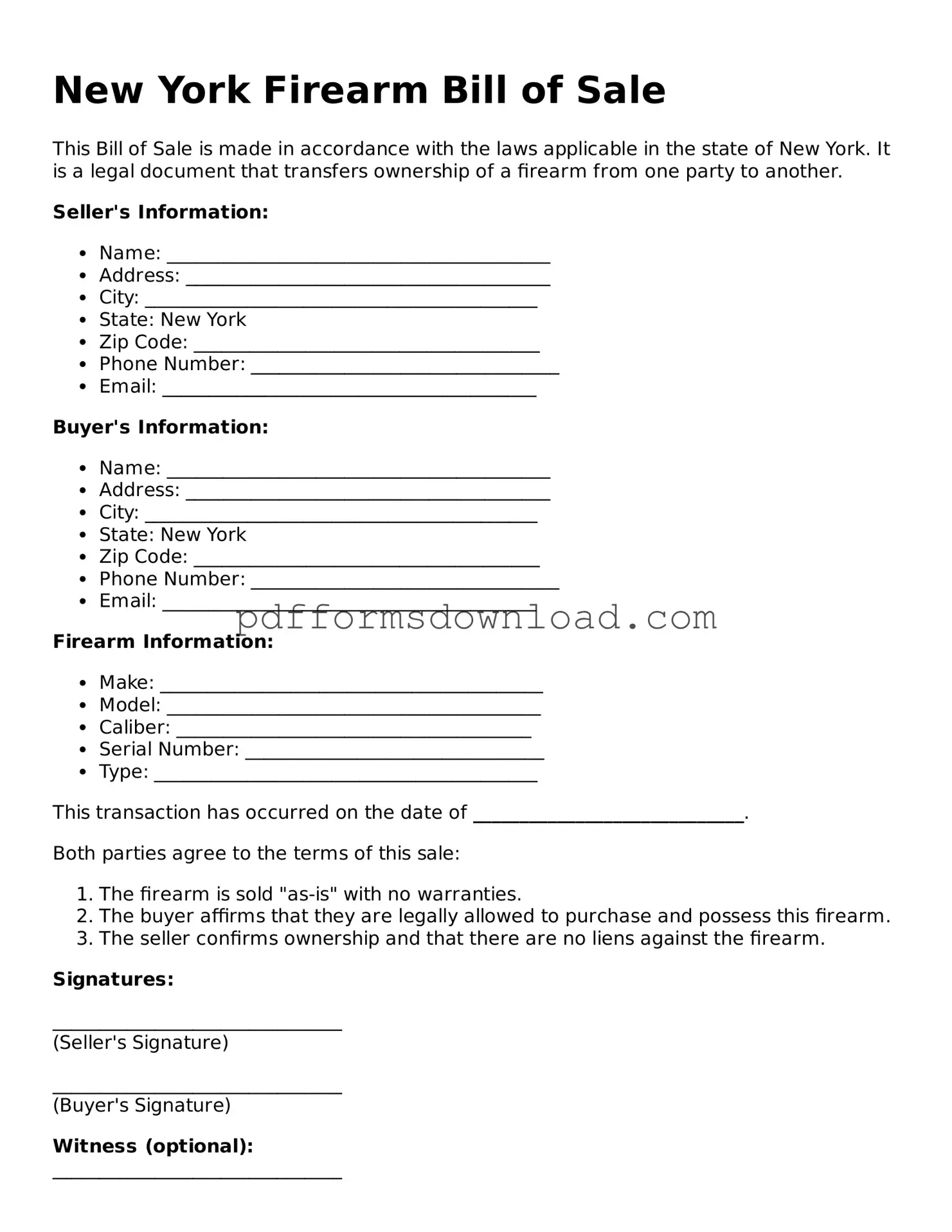What is a Firearm Bill of Sale in New York?
A Firearm Bill of Sale is a legal document that records the transfer of ownership of a firearm between a seller and a buyer in New York. This form serves as proof of the transaction and details essential information about both parties and the firearm being sold.
Is a Firearm Bill of Sale required in New York?
While New York does not legally require a Bill of Sale for private firearm transactions, it is highly recommended. Having this document can protect both the buyer and seller by providing a record of the transaction, which can be useful in case of future disputes or legal inquiries.
What information should be included in the Bill of Sale?
The Bill of Sale should include the names and addresses of both the buyer and seller, the date of the transaction, a description of the firearm (including make, model, and serial number), and the purchase price. Both parties should sign the document to make it valid.
Do I need to have the Bill of Sale notarized?
No, notarization is not required for a Firearm Bill of Sale in New York. However, having a notary public witness the signatures can add an extra layer of security and legitimacy to the document.
Can I sell a firearm to someone from another state?
Yes, but the transaction must comply with federal and state laws. In most cases, the buyer must go through a licensed dealer in their state to complete the transfer. It’s essential to understand both states’ regulations before proceeding.
What happens if I lose my Bill of Sale?
If you lose your Bill of Sale, it can be challenging to prove ownership. It’s a good practice to keep a copy of the document in a safe place. If you can’t find it, consider creating a new Bill of Sale with the same details and both parties’ signatures to reaffirm the transaction.
Can I use a generic Bill of Sale form?
Yes, you can use a generic Bill of Sale form as long as it includes all necessary information about the transaction. However, using a form specifically designed for firearms can ensure that all relevant details are captured and that it complies with state requirements.
What should I do if the buyer refuses to sign the Bill of Sale?
If a buyer refuses to sign the Bill of Sale, it’s advisable to reconsider the transaction. A signed Bill of Sale provides protection for both parties. If the buyer is unwilling to sign, it may raise red flags about their intentions.
Are there any restrictions on who can buy a firearm in New York?
Yes, New York has specific restrictions. Generally, individuals must be at least 21 years old and pass a background check. Certain individuals, such as felons or those with a history of mental illness, are prohibited from purchasing firearms. Always verify the buyer’s eligibility before completing the sale.
What should I do if I suspect the firearm is stolen?
If you suspect that a firearm is stolen, do not proceed with the sale. Report your concerns to local law enforcement. They can help verify the firearm's status and ensure that you are not unknowingly participating in illegal activity.

